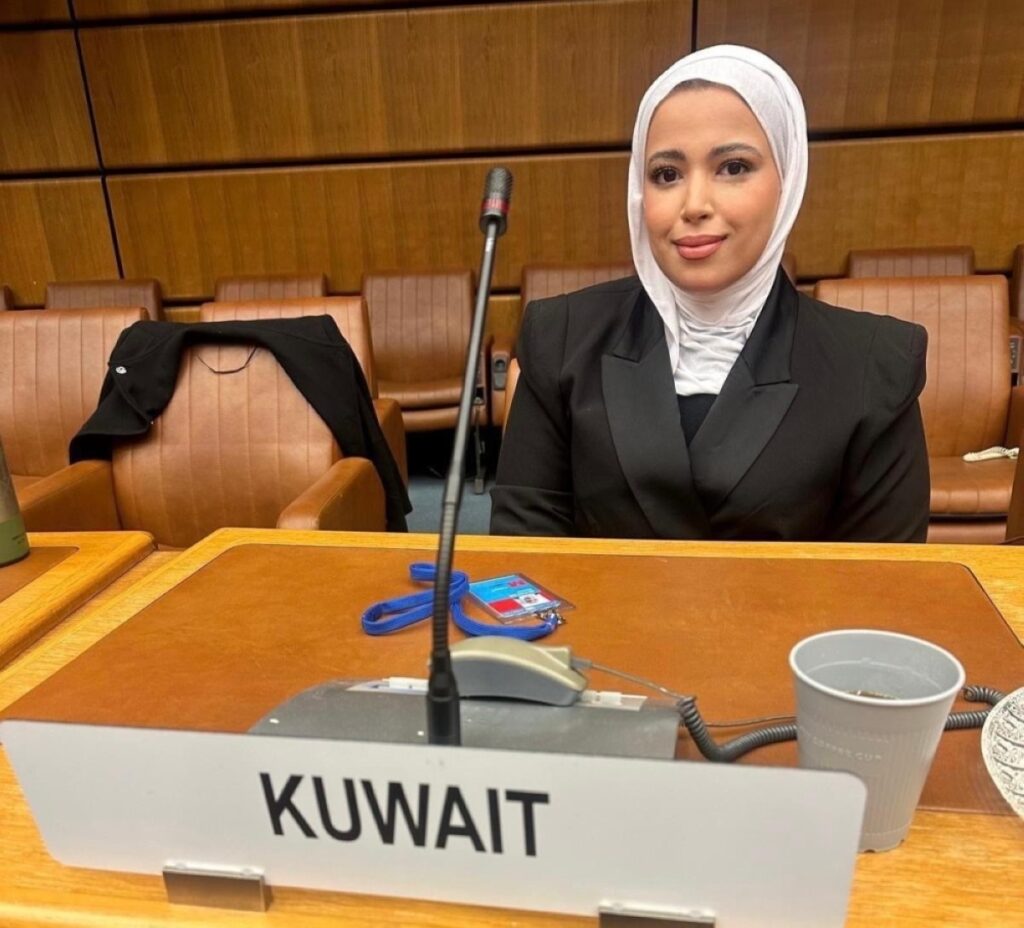VIENNA/NEW YORK: Kuwait reiterated its steadfast support for the principles of the United Nations Convention Against Corruption (UNCAC) and its ongoing backing of the International Anti-Corruption Academy, emphasizing efforts to strengthen integrity and institutional capacities at both national and international levels. Speaking at the 14th session of the assembly of states parties to the academy, Third Secretary of Kuwait’s Permanent Delegation in Vienna, Munira Al-Tayyar, highlighted Kuwait’s comprehensive national strategy to combat corruption, supervised by the Kuwait Anti-Corruption Authority (Nazaha) in coordination with governmental bodies and civil society organizations.
She stressed the importance of sustained financial and technical support to the academy to help it fulfill its educational and research missions and maintain its status as a leading global center in anti-corruption efforts. Al-Tayyar further noted Kuwait’s commitment to reinforcing international solidarity and multilateral cooperation to confront corruption in all its forms. She affirmed Kuwait’s readiness to continue close collaboration with the academy and member states to achieve shared goals in promoting integrity, the rule of law, and sustainable development.

Kuwaiti Diplomatic Attaché at the UN Abeer Al-Methen

Kuwaiti Diplomatic Attache Mariam Mansouri
Action against Islamophobia
Kuwait also called for strengthening UN mechanisms to monitor Islamophobia and address manifestations of hatred against Muslims, voicing its full support for the efforts of UN Special Rapporteurs combating discrimination. The statement, delivered by Kuwaiti Diplomatic Attache Abeer Al-Methen before the UN General Assembly’s Social, Humanitarian and Cultural Committee under the agenda item “Promotion and Protection of the Rights of the Child,” emphasized the importance of diversity as a source of social strength and cohesion.
Al-Methen underscored Kuwait’s role as a model of tolerance, hosting residents from over 170 nationalities in a socially harmonious environment. She warned, however, that rising Islamophobia and religious hatred pose serious threats to social cohesion and human dignity. She commended UN Special Rapporteur on Freedom of Religion or Belief Nazila Ghanea for highlighting the rapid increase in anti-Muslim discrimination, quoting her assertion that Islamophobia is “the fastest growing form of religious discrimination in the world.”
Protecting children
Kuwait stressed the need for comprehensive and sustainable measures to protect children affected by armed conflicts, emphasizing that the crisis extends beyond immediate humanitarian relief to long-term empowerment and protection. Kuwaiti Diplomatic Attache Mariam Mansouri, addressing the UN Third Committee, highlighted the severe impact of ongoing conflicts on children in Gaza, the Democratic Republic of the Congo, Myanmar, Sudan, and other crisis zones, including killings, forced recruitment, denial of education, and displacement.
Mansouri noted Kuwait’s longstanding humanitarian leadership in safeguarding children’s rights, citing the country’s contributions to educational, health, and psychological programs benefiting over two million children in conflict areas, in cooperation with UN agencies. She also praised the efforts of UN special rapporteurs and experts in highlighting these grave challenges. Concluding Kuwait’s statement, Mansouri reaffirmed the country’s commitment to international cooperation in strengthening legal frameworks to protect children in armed conflicts and called for a comprehensive global strategy to ensure every child’s right to safety, education, care, and a dignified life. — KUNA

